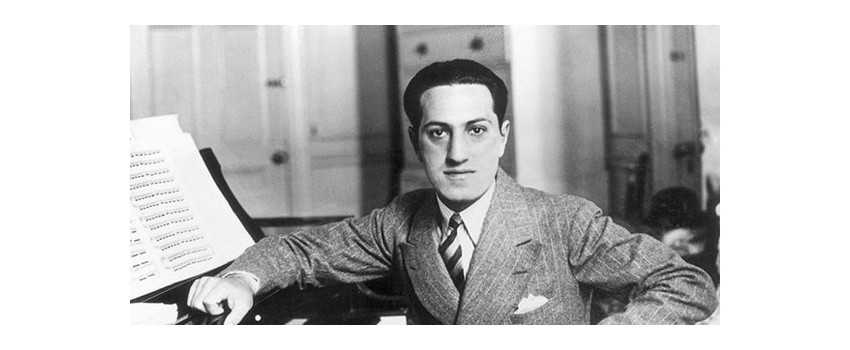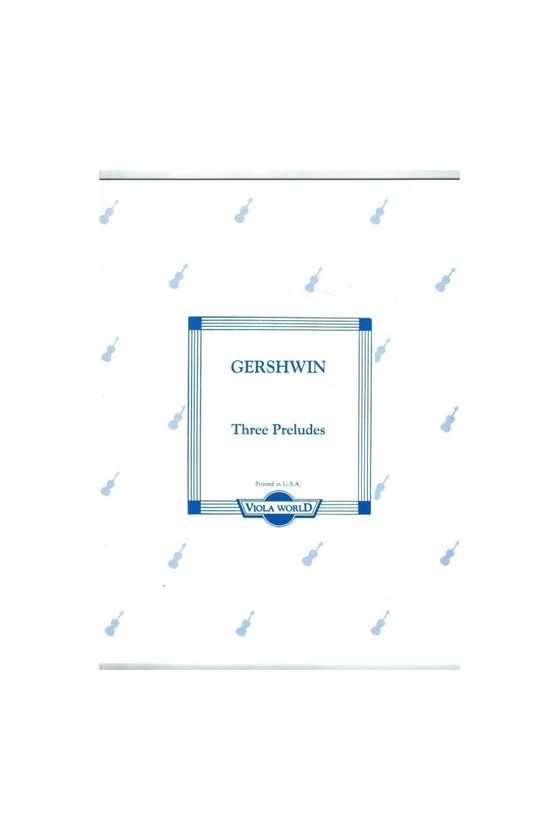Gershwin, George
George Gershwin (26 September 1898 – 11 July 1937) was one of the most important and influential American composers of all time. He composed mostly for the Broadway musical theatre, but his orchestral and piano works are often significant in that he combined the techniques and forms of classical music with the stylistic complexities and techniques of modern music and jazz to varying degrees. George Gershwin wrote several famous songs for his lyricist brother Ira (such as "Embraceable You" and "They Can't Take That Away from Me"), whole Broadway musicals, and the Porgy and Bess folk opera. He wrote several significant and famous chamber and orchestral pieces, including Maurice Ravel and Sergey Prokofiev, that were praised by classical composers. In both modern and classical genres, George Gershwin is significant for his great creativity as a melodist, and for his chamber as well as orchestral works that elaborately combine the styles and techniques of classical music with components of famous song and jazz.
Popular and classical music were equally important to American musician and composer George Gershwin. Rhapsody in Blue (1924), An American in Paris (1928), Swanee (1919), Fascinating Rhythm (1924), Embraceable You (1928), I Got Rhythm (1930), and Porgy and Bess (1935) are only some of his most famous pieces and songs. Charles Hambitzer taught Gershwin piano, while Rubin Goldmark, Henry Cowell, and Joseph Brody taught him composition. It all started with him plugging songs, but shortly after, he was working on Broadway musicals with his brother Ira and Buddy DeSylva. However, Nadia Boulanger turned him down because she was concerned that a classical education might dilute his jazz influences. Maurice Ravel had similar reservations when Gershwin enquired about learning with him. Porgy and Bess were written with Ira and DuBose Heyward after the composition of An American in Paris. An early financial disaster, it has now become one of the most significant and enduring works in modern American opera.
As a result of his migration to Hollywood, Gershwin created music for various films. Unfortunately, a cancerous brain tumor claimed his life in 1937. Nevertheless, film and television producers often employ some of his songs, which have become jazz classics that are recorded and reworked several times. Early twentieth-century French composers had an impact on Gershwin's style. To his credit, Maurice Ravel expressed his admiration for Gershwin's skills, saying, "For me, jazz is all about rhythm and melody: how the melodies are arranged, how they are played, and how they are sung. Intriguing. I've heard of George Gershwin and his works." Ravel's two piano concertos show a strong influence from Gershwin, as do the orchestrations in several of Gershwin's orchestral compositions.
Gershwin requested Ravel to teach him. As soon as Ravel learned how much money Gershwin made, he said, "You should teach me." Although Stravinsky has acknowledged that he first heard it from Ravel, Igor Stravinsky is not the composer in some versions of this tale.) Concerto in F was panned because of its overt Claude Debussy influence rather than its anticipated jazz flavor. But, although he was aware of the resemblance, it didn't discourage him from furthering his research into French design. "The initial portion will be developed in a classic French style, in the way of Debussy and Les Six, albeit the songs are unique," he wrote in his autobiography, "An American in Paris."
Alban Berg, Dmitri Shostakovich, Igor Stravinsky, Darius Milhaud, and Arnold Schoenberg impacted Gershwin. He also requested composing instruction from Schoenberg. Schoenberg responded, "I would make you a horrible Schoenberg, and you're such a terrific Gershwin now. I'm not going to do that for you." If you want to be known as one of the greatest composers of the 20th century, then don't settle with second-rate composers like Maurice Ravel. Berg, who provided Gershwin with a score of the Lyric Suite, knew how much Gershwin admired his music. According to a biography, the American premiere of Wozzeck, conducted by Leopold Stokowski in 1931, left him "thrilled and immensely delighted," according to a memoir.
Russian Joseph Schillinger, Gershwin's composition tutor from 1932 to 1936, had a significant impact on the composer's writing style. Gershwin and Schillinger's effect on each other has been a source of debate. The posthumous popularity of Porgy and Bess brought up claims of Schillinger's direct involvement in the opera's production, although Ira vehemently denied that his brother had any involvement. Vernon Duke, a close friend of Gershwin's and a Schillinger student, wrote an essay for the Musical Quarterly in 1947 on the composer's relationship with his instructor.
Gershwin's ability to transform musical genres into his distinct voice set him apart from the rest of the composers of his day. Splicing Tin Pan Alley jazz with popular song rhythms and tones allowed him to mainstream the music. Gershwin seldom made sweeping declarations about his music, but he was confident that: "True art music must encapsulate the spirit and ambitions of the time and place it was created. My ancestors hail from the United States. Today is the day when I am scheduled to appear in court."
The George and Ira Gershwin Prize for Popular Song was established in 2007 and is named after the Gershwin brothers. The prize is awarded yearly to a composer or performer whose work best exemplifies Gershwins' standard of quality in recognition of the immense cultural impact of popular music. Paul Simon was the inaugural recipient of the Gershwin Prize, presented on March 1st, 2007.


